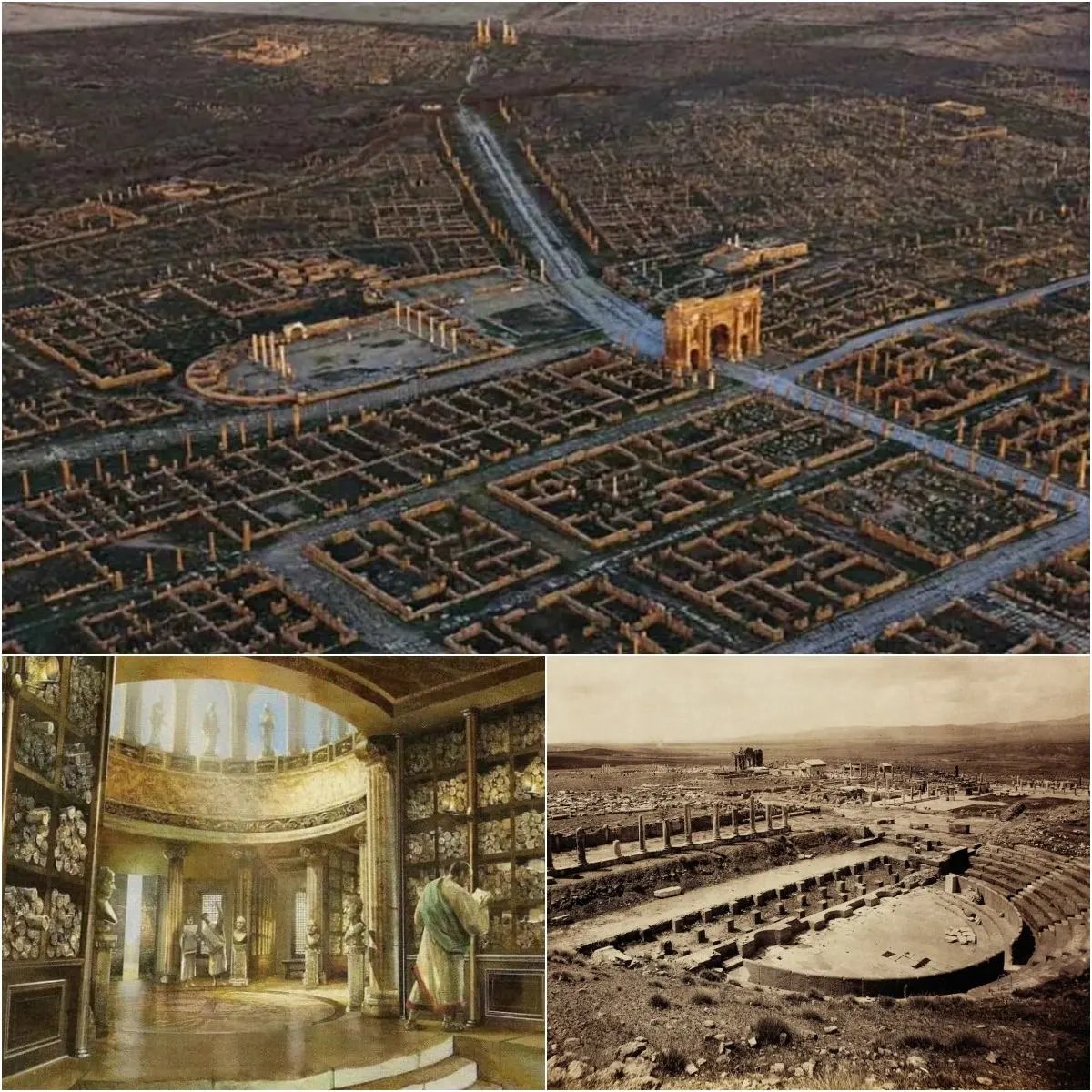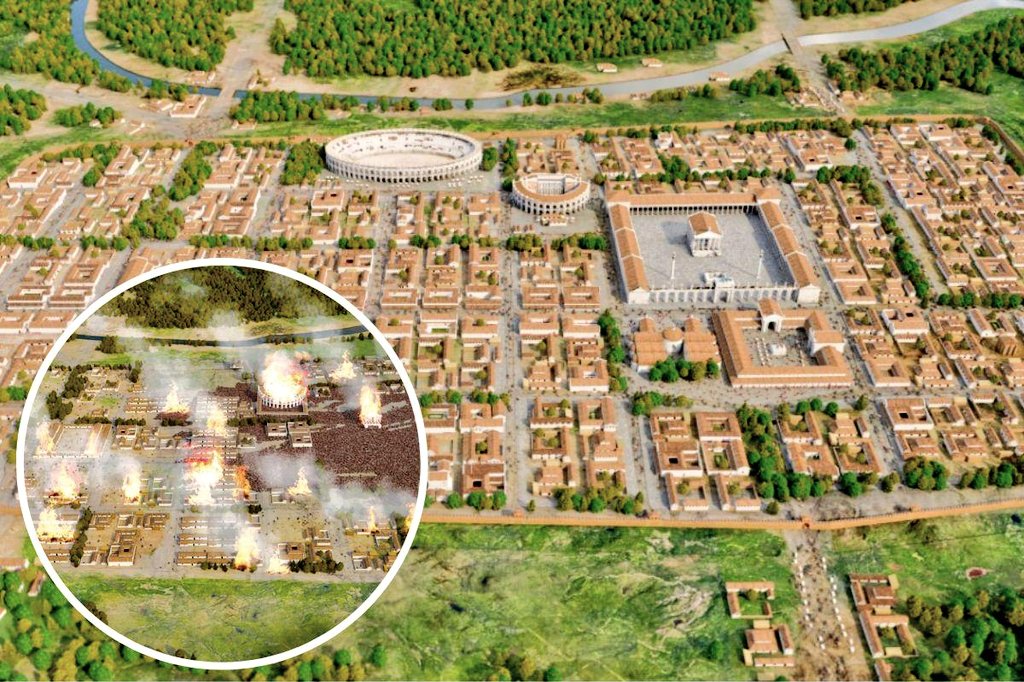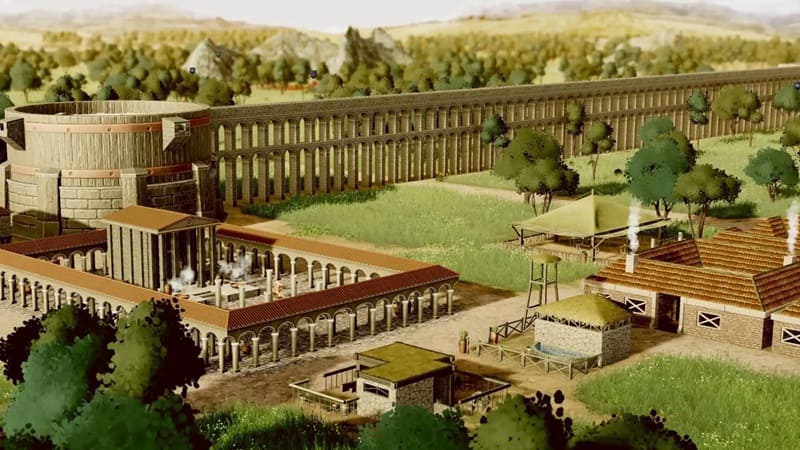The lost Roman city of Thamugadi, known today as Timgad, is a real and significant archaeological site in Algeria
The lost Roman city of Thamugadi, known today as Timgad, is a real and significant archaeological site located in Algeria. Founded by the Roman Emperor Trajan around 100 AD, it was built as a military colony for retired soldiers of the Third Augustan Legion. The city’s original name was a tribute to its founder, Colonia Marciana Traiana Thamugadi. Its strategic location at the confluence of six valleys allowed it to control the passes of the Aures Mountains, making it a crucial hub for military and trade operations.

Timgad is a remarkable example of Roman urban planning, laid out in a perfectly orthogonal grid, a characteristic of Roman military camps. The city flourished for centuries, experiencing a golden age in the 2nd and 3rd centuries AD. Its ruins today reveal a highly organized society with a large number of public buildings, including a massive, 3,500-seat theater, a forum, a capitol, baths, and a library.

The city’s decline began with the Vandal invasion in the 5th century AD, and it was eventually abandoned after the Arab conquest in the 7th century. Covered by the sands for over a thousand years, it was remarkably preserved and rediscovered in 1881. Today, Timgad is a UNESCO World Heritage site, one of the best-preserved examples of a Roman colonial city, offering archaeologists and historians a unique and complete picture of life in a Roman outpost.
